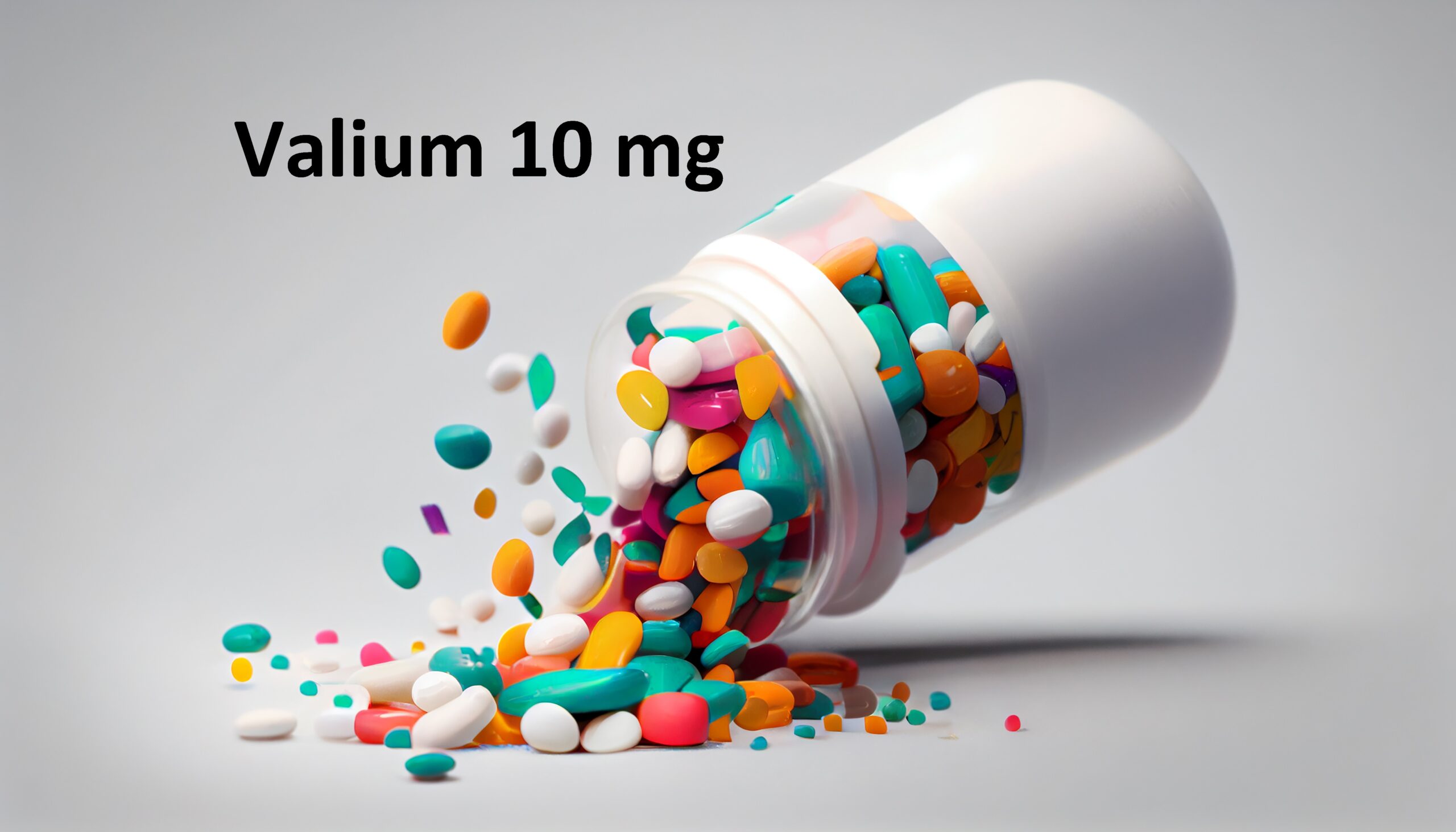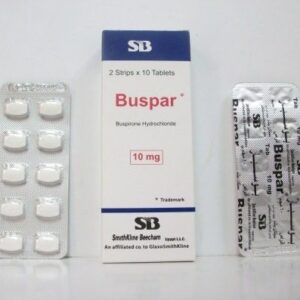Valium, a brand name for the generic drug diazepam, is a well-known and widely prescribed medication belonging to the benzodiazepine class. Valium 10 mg, a specific dosage within this range, holds significance for its potency and therapeutic applications. This article delves into the various aspects of Valium 10 mg, exploring its pharmacology, therapeutic uses, potential side effects, and the broader context of benzodiazepine medications in mental health treatment.
Understanding Valium 10 mg:
**1. Pharmacological Mechanism:
- Benzodiazepine Action: Diazepam, the active ingredient in Valium, acts on the central nervous system by enhancing the effects of gamma-aminobutyric acid (GABA), a neurotransmitter that inhibits brain activity. This interaction results in a calming effect on the nervous system, making Valium effective in managing conditions characterized by excessive neural excitation.
2. Therapeutic Uses:
- Anxiety Disorders: Valium 10 mg is commonly prescribed for the treatment of various anxiety disorders, including generalized anxiety disorder (GAD) and social anxiety disorder (SAD).
- Insomnia: Due to its sedative properties, Valium is sometimes used in the short-term management of insomnia, helping individuals initiate and maintain sleep.
- Muscle Spasms: The muscle-relaxant properties of Valium make it effective in alleviating muscle spasms, making it a valuable tool in the management of conditions like spasticity.
- Seizure Disorders: Diazepam, the active ingredient in Valium, is also utilized to manage certain types of seizures, providing anticonvulsant effects.

3. Dosage Considerations:
- Individualized Dosage: The appropriate dosage of Valium varies from person to person based on factors such as the severity of the condition, individual response to the medication, and other health considerations.
- 10 mg Strength: Valium 10 mg is considered a moderate to high dose and is often prescribed in cases where more significant sedation or anxiolysis is required.
4. Onset of Action and Duration:
- Rapid Onset: Valium is known for its relatively rapid onset of action, providing quick relief for acute symptoms.
- Duration of Effect: The effects of Valium typically last for several hours, necessitating careful consideration of dosing frequency.
Exploring Valium in Mental Health Treatment:
1. Anxiety Management:
- Rapid Relief: Valium 10 mg is particularly effective in providing rapid relief from acute anxiety symptoms. Its anxiolytic properties contribute to a sense of calmness and relaxation.
- Short-Term Use: Due to the potential for tolerance and dependence, Valium is often prescribed for short-term use, allowing individuals to manage acute episodes without reliance on the medication in the long term.
2. Insomnia Treatment:
- Sleep Initiation: Valium’s sedative effects make it beneficial for individuals struggling with insomnia, especially those experiencing difficulty initiating sleep.
- Limited Duration: Continuous or prolonged use for insomnia is generally avoided due to the risk of dependence and diminished effectiveness over time.
3. Muscle Spasm Relief:
- Effective Muscle Relaxant: Valium’s muscle relaxant properties make it a valuable medication in the treatment of acute muscle spasms. This is particularly relevant for conditions like back pain or injuries.
- Adjunct to Physical Therapy: It may be prescribed alongside physical therapy to enhance the overall management of musculoskeletal conditions.
4. Seizure Control:
- Anticonvulsant Effects: In the context of seizure disorders, Valium plays a role in controlling and preventing certain types of seizures.
- Emergency Use: Diazepam, often administered in the form of a rectal gel, is used in emergency situations to manage prolonged or recurrent seizures.
Navigating the Potential Side Effects:
1. Common Side Effects:
- Drowsiness and Sedation: Valium’s sedative effects can lead to drowsiness and sedation, affecting alertness and coordination.
- Muscle Weakness: Some individuals may experience muscle weakness, particularly at higher doses.
2. Serious Side Effects:
- Respiratory Depression: In rare cases, especially when combined with other central nervous system depressants, Valium may cause respiratory depression, a potentially serious side effect.
- Dependence and Withdrawal: Prolonged use of Valium, particularly at higher doses, may lead to dependence, and abrupt discontinuation can result in withdrawal symptoms.
3. Interactions with Other Substances:
- Drug Interactions: Valium can interact with other medications, including certain antidepressants, antipsychotics, and opioids. It is crucial to inform healthcare providers about all medications being taken to avoid potential adverse interactions.
Balancing Therapeutic Benefits and Risks:
1. Short-Term vs. Long-Term Use:
- Short-Term Goals: The use of Valium 10 mg is often aligned with short-term treatment goals, providing relief during acute phases of anxiety, insomnia, or muscle spasms.
- Long-Term Considerations: Long-term use is approached cautiously due to the risk of dependence and tolerance.
2. Individualized Treatment Plans:
- Tailored Approaches: Healthcare providers strive to develop individualized treatment plans, considering the unique needs and responses of each patient. This involves periodic assessments to determine ongoing medication necessity and efficacy.
3. Monitoring and Adjustments:
- Regular Monitoring: Individuals on Valium are typically monitored regularly to assess their response to the medication and address any emerging side effects.
- Dose Adjustments: Based on individual responses and treatment goals, healthcare providers may make dose adjustments to optimize therapeutic benefits.
Conclusion:
Valium 10 mg, with its potent diazepam content, holds a significant place in the realm of medications used to manage anxiety, insomnia, muscle spasms, and certain seizure disorders. Its rapid onset of action and versatility contribute to its widespread use in various clinical scenarios. However, the potential for side effects, dependence, and tolerance underscores the importance of cautious prescribing and close medical supervision.
As with any medication, the decision to prescribe Valium, especially at higher doses like 10 mg, should be guided by a careful consideration of the individual’s clinical presentation, treatment goals, and potential risks. The ongoing dialogue between healthcare providers and patients is crucial for navigating the tranquil waters of diazepam, ensuring that the therapeutic benefits are harnessed responsibly for improved mental and physical well-being.





Reviews
There are no reviews yet.